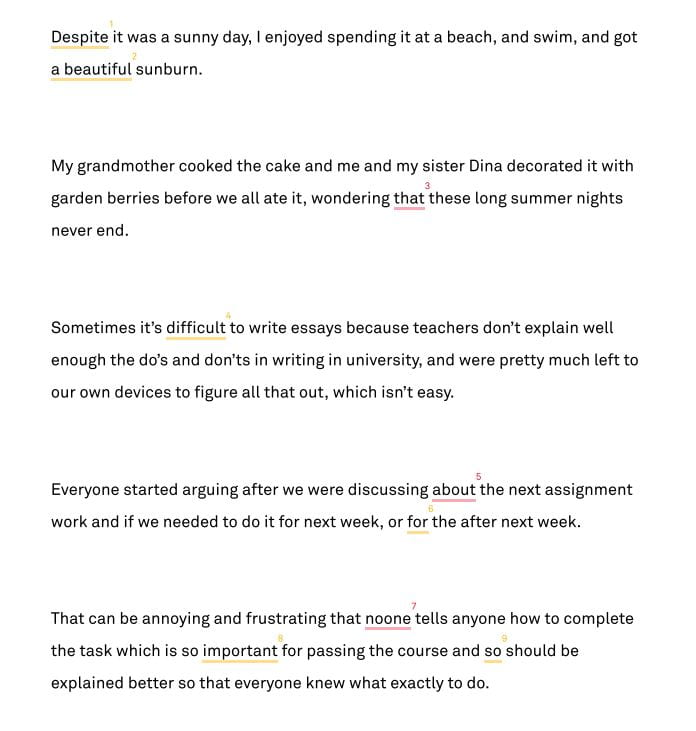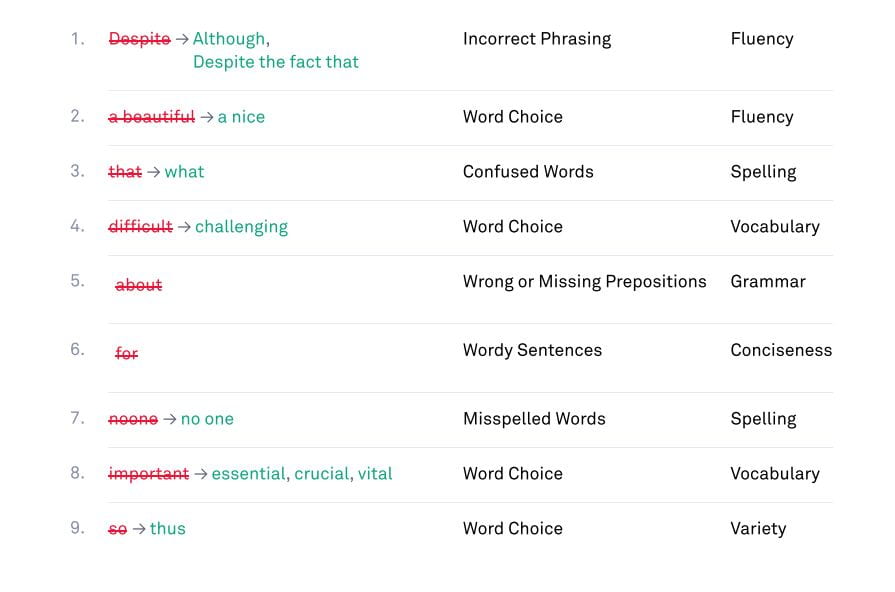Grammarly proofreads faulty sentences
Non-native English speakers tend to rely on grammar- and style-checking tools to proofread their writing.
In this experiment, we let Grammarly check five sentences that contain mistakes typical to non-English speakers: this included the use of incorrectly chosen or confused words; redundant prepositions in combination with verbs; mixed word orders; verbs used in the wrong tense; and poor syntactical constructions, which result in long and imbalanced sentences.
We used the Premium version and set the goals as follows:
Even though Grammarly performed slightly better than the MSGC in the same experiment, it still failed to note many mistakes and/or offered inadequate corrections.
Here is the overview of mistakes identified by Grammarly:
And here are the suggested corrections for each flagged word:
Grammarly did accurately note the incorrect use of “despite” in the first sentence, but it failed to grasp the generally illogical meaning of the sentence as well as the mismatched verb tenses.
The tool suggested replacing “that” with “what” in the second sample (thinking it’s a spelling mistake), but it did not notice the incorrect use of the word “wondering” (which has been confused here with “wishing” or its synonym).
In the third sentence, Grammarly flagged “difficult” as a generally overused word and suggested replacing it with “challenging” in order “to improve the sharpness of writing.” It missed the missing apostrophe in “were” (should be “we’re”), as well as the informal phrase “pretty much” and it more generally had no objections to this poorly written sentence.
It noted the redundant preposition “about” in the fourth sample, but failed to notice the other things that were wrong with this sentence (i.e. the incorrect use of tense; the repetition of “after”; the general wordiness of the sentence; and the phrase “the after next week”).
The last sentence is written with an informal and excessively emotional tone. Grammarly did notice the misspelling of “noone” and the repetition of “so” (which it suggested replacing with the highly formal “thus”); however, it had no comments on the repeated use of “that” or on any other stylistic and rhetorical issue.
Text used in the experiment: Mock ESL/EFL student sentences with mistakes that we devised for an undergraduate writing course. Click here to download the sentences in a .docx format.


